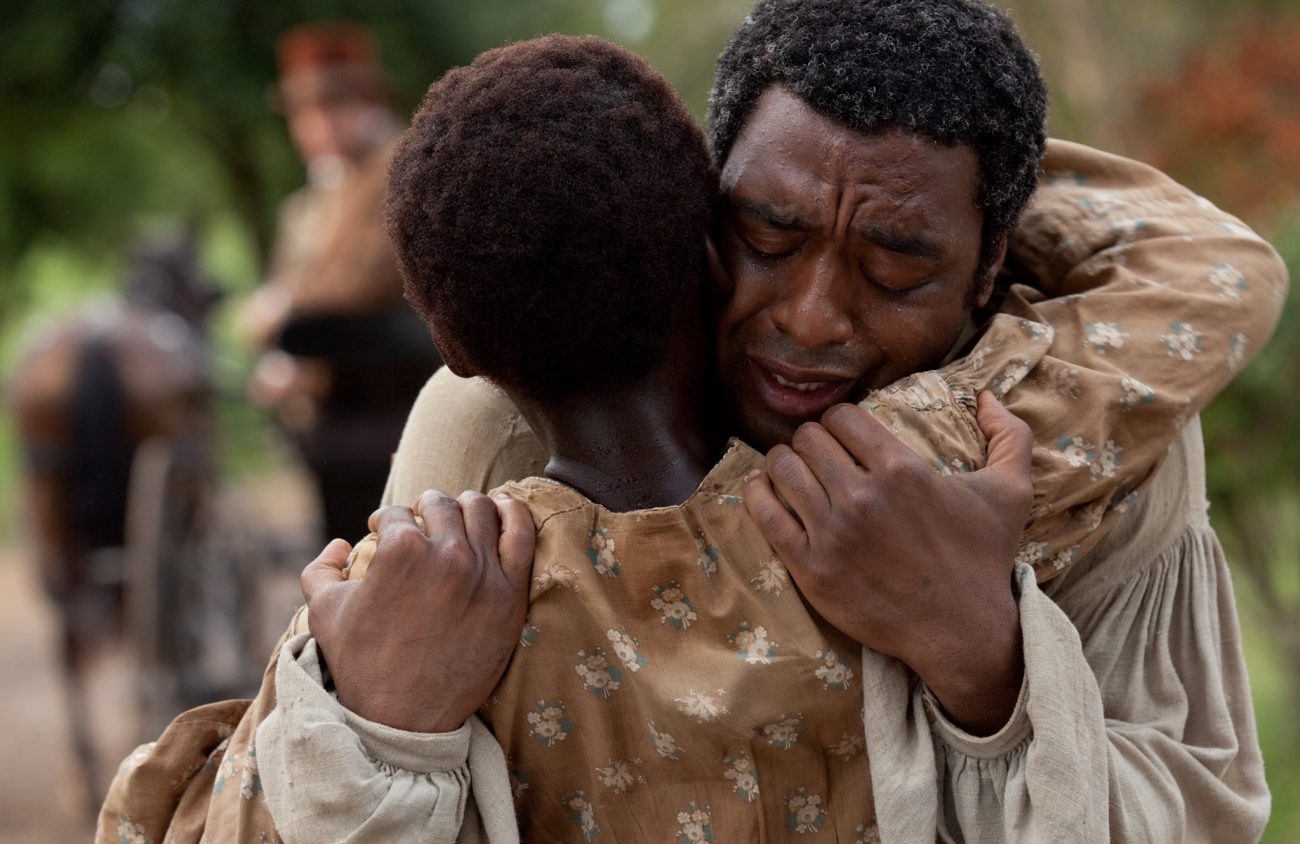Director Steve McQueen’s new film is leaps and bounds above his last. The artfully tiresome, cramped and cold Shame gave little clue that McQueen would follow it with a film as grand and intimate as 12 Years a Slave, which tells the ugly, astonishing true story of Solomon Northup (Chiwetel Ejiofor), a free man who was kidnapped and sold as a slave in 1841.
Ejiofor has been a magnetic screen presence since at least 2005’s Serenity, but always in a supporting role. McQueen keeps the camera close to him, lingering on Solomon’s face, cheeks trembling with tension, in moments of transition. Ejiofor makes it look easy, but his performance is layered and deep; as a slave, he’s called Platt, and Platt can’t say any of the things Solomon thinks, especially when it comes to his perpetually angry master, Epps (Michael Fassbender).
Fassbender is tautly excellent, as always, steaming with misdirected rage and tangled in a nasty situation with his wife (Sarah Paulson), who pushes Epps to get rid of Patsey (Lupita Nyong’o), the best cotton picker and Epps’ obvious favorite. In a lesser movie, Patsey would have been present just for terrible things to happen to her, but John Ridley’s screenplay gives Patsey the outline of a character and Nyong’o runs with it, loathing coming off her in waves except when she’s alone in the field, making fragile dolls out of corn husks.
12 Years is a beautifully made film: The cinematography is generous with the lush Southern landscape and equally unsparing with the casual brutality of an overseer or slaveowner. Hans Zimmer’s excellent score switches from swoopy strings to jarring, uncomfortable, almost industrial tones with unexpected ease. Ridley, working from Solomon Northup’s book, weaves the story quickly and neatly around Solomon, touching on things we’ve come to expect from a cinematic narrative about slavery: the kind owner, the cruel owner, the raping master, the brutal overseer, the justification of slavery by a white man waving a Bible.
Some of these images are familiar, but the way McQueen presents them is less so: He’s not interested in heroes and villains, but in the ugly reality of a system in which everyone is complicit. 12 Years a Slave is a story that shows, efficiently and clearly, how institutionalized bigotry is a thing that affects everyone, even those who don’t want to take part; how it strips out the possibility of kindness and erodes compassion. The closest thing to kindness is the condescending paternalism of Solomon’s first master, Ford (Benedict Cumberbatch), who is only “good” if we grade on a curve. He is nothing but a breath between moments of cruelty both casual and breathtakingly violent, between the home where naked men and women are appraised by would-be owners and the cotton field where slower pickers are beaten.
Solomon’s fate is anything but his own, once he’s been kidnapped, and he moves from owner to owner, enduring. His future comes to rest in the hands of a well-meaning white roamer, Bass (a slightly distracting Brad Pitt), who is forthright about both his interest in justice and his awareness that helping Solomon is dangerous for them both. Solomon has grasped at hope several times now, only to lose it in the most brutal fashion; choosing to trust Bass is no simple decision. It’s a difficult scene to swallow, even as it’s the kindest scene in the film: Solomon’s fate, his freedom, is dependent on a white man, just as his slavery is. Though it’s never prescriptive — there are no clichéd messages or closing speeches to be had — 12 Years a Slave never lets you away from this truth, sticking close to Solomon as he struggles not just to survive, but to live.
12 YEARS A SLAVE: Directed by Steve McQueen. Screenplay by John Ridley, based on the book by Solomon Northup. Cinematography, Sean Bobbitt. Editing, Joe Walker. Music, Hans Zimmer. Starring Chiwetel Ejiofor, Michael Fassbender, Sarah Paulson, Lupita Nyong’o, Benedict Cumberbatch and Paul Dano. Fox Searchlight, 2013. R. 134 minutes. Five stars.
